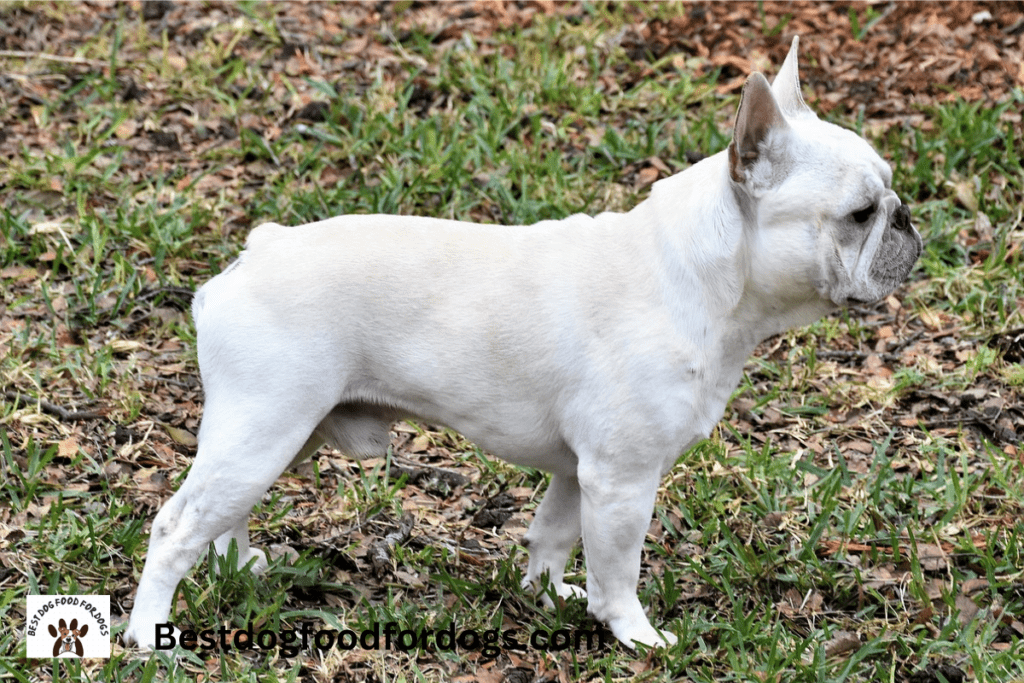French Bulldogs are charming, compact companions with massive popularity across the globe, but are they suitable for allergy sufferers? If you’re someone who sneezes, sniffles, or experiences itchy eyes around dogs, you’ve likely asked the question: Are French Bulldogs hypoallergenic? In this 2025 guide, we break down the truth behind pet allergies, how French Bulldogs rank, and how to manage potential allergic reactions while enjoying life with one of the world’s most beloved breeds. We’ll also touch on how the best diet for Frenchies supports overall health and explore some common Bulldog medical concerns that may affect sensitive owners and their pets alike.
What Does “Hypoallergenic” Mean?
A hypoallergenic dog breed is less likely to trigger allergic reactions. This doesn’t mean they’re 100% allergy-proof. Allergies to dogs are typically caused by:
- Dander (dead skin flakes)
- Saliva proteins
- Urine
- Shed hair carries allergens
So, a dog labeled “hypoallergenic” usually produces fewer allergens, or sheds less, reducing the spread of irritants in your home.
Are French Bulldogs Hypoallergenic?
No, French Bulldogs are not hypoallergenic.They do produce dander, shed hair, and often drool—all of which can trigger allergies in sensitive individuals. Frenchies have short, smooth coats that shed moderately and can release allergens into the air and onto furniture, clothes, and bedding. Curious about their shedding levels? Learn more in our full guide on do French Bulldogs shed. Their popularity doesn’t equate to being allergy-friendly. In fact, due to their skin folds, flat face, and grooming needs, French Bulldogs might require even more cleaning and care to reduce allergen buildup in the home.

Why French Bulldogs Are Not Hypoallergenic?
1. Dander and Skin Flakes
French Bulldogs naturally shed dander, which contains the proteins responsible for triggering allergic reactions. These flakes easily become airborne or settle on surfaces.
2. Shedding
While they don’t shed excessively, French Bulldogs do shed year-round, especially during seasonal changes. Their short hair can carry allergens and spread quickly through your home.
3. Saliva Allergens
Frenchies tend to drool more than average, especially after meals, during sleep, or in hot weather. Saliva can dry on your dog’s fur or surroundings, further spreading allergenic proteins.
4. Wrinkles and Skin Folds
Moisture and bacteria can accumulate in their facial folds, contributing to unpleasant odours and additional allergen build-up if not cleaned regularly.
Common Allergy Symptoms Triggered by Dogs
If you have a sensitivity to pet allergens, symptoms may include:
- Runny or stuffy nose
- Sneezing and post-nasal drip
- Itchy, red, or watery eyes
- Coughing, wheezing, or shortness of breath
- Skin rashes or hives after contact
The severity of reactions varies. Some people experience mild discomfort, while others develop more serious respiratory issues.
Can Allergy Sufferers Live with a French Bulldog?
Yes, some allergy sufferers can live with a Frenchie, especially those with mild or specific sensitivities. It depends on the person and the steps taken to minimise allergen exposure.
Here are practical ways to make it work:
Tips to Manage Allergies Around French Bulldogs
1. Regular Grooming
- Brush your Frenchie weekly to remove loose hairs and dander.
- Wipe down skin folds daily with a damp cloth.
- Bathe every 3–4 weeks using a gentle, hypoallergenic shampoo.
2. Clean Living Spaces Often
- Vacuum with a HEPA filter.
- Wash bedding, furniture covers, and pet toys weekly.
- Use an air purifier to remove airborne allergens.
3. Set Allergy-Safe Zones
- Make bedrooms and soft-furniture areas pet-free.
- Use washable covers on sofas and rugs.
4. Improve Your Dog’s Diet
A healthy diet reduces skin irritation and promotes a strong coat, which may reduce shedding and dander.
Allergy Testing: Know Before You Adopt
Before bringing a French Bulldog into your home, consider:
- Spending time with the breed to gauge your reaction
- Getting an allergy test from an allergist
- Discussing pet-safe allergy treatments or medications
Some allergy sufferers find their reactions are manageable or fade over time with exposure. Others may require lifestyle adjustments or medical support.
Are Any Dog Breeds Truly Hypoallergenic?
No dog is entirely free of allergens, but these breeds are considered more allergy-friendly:
- Poodles (and mixes like Goldendoodles)
- Bichon Frises
- Maltese
- Portuguese Water Dogs
- Schnauzers
These dogs tend to shed less and produce fewer allergens, making them better suited to sensitive individuals.
Final Thoughts: Should You Get a French Bulldog If You Have Allergies?
French Bulldogs are not hypoallergenic, but that doesn’t mean they’re off-limits to everyone with allergies. By taking the right precautions, some allergy sufferers can comfortably live with a Frenchie and enjoy their companionship without constant discomfort.
If you’re willing to commit to consistent grooming, household cleaning, and perhaps a little trial-and-error, a French Bulldog could still be a suitable choice.
Before making the decision, explore more insights on Frenchdogs’ hypoallergenic traits and speak with both your vet and healthcare provider to ensure a safe, informed adoption.
Frequently Asked Questions (FAQs)
1. Are French Bulldogs hypoallergenic?
No, French Bulldogs are not hypoallergenic. They shed dander and produce saliva proteins that can trigger allergic reactions.
2. Do French Bulldogs shed a lot?
French Bulldogs are moderate shedders. They shed year-round, with increased shedding during seasonal changes.
3. Can I live with a French Bulldog if I have allergies?
Yes, with proper grooming, regular cleaning, and allergen management, some people with mild allergies can live with French Bulldogs.
4. What causes dog allergies?
Dog allergies are typically triggered by proteins found in dander, saliva, and urine, not just fur.
5. Which dog breeds are best for allergy sufferers?
Poodles, Bichon Frises, Maltese, and Schnauzers are considered better options for allergy sufferers due to lower allergen production.

